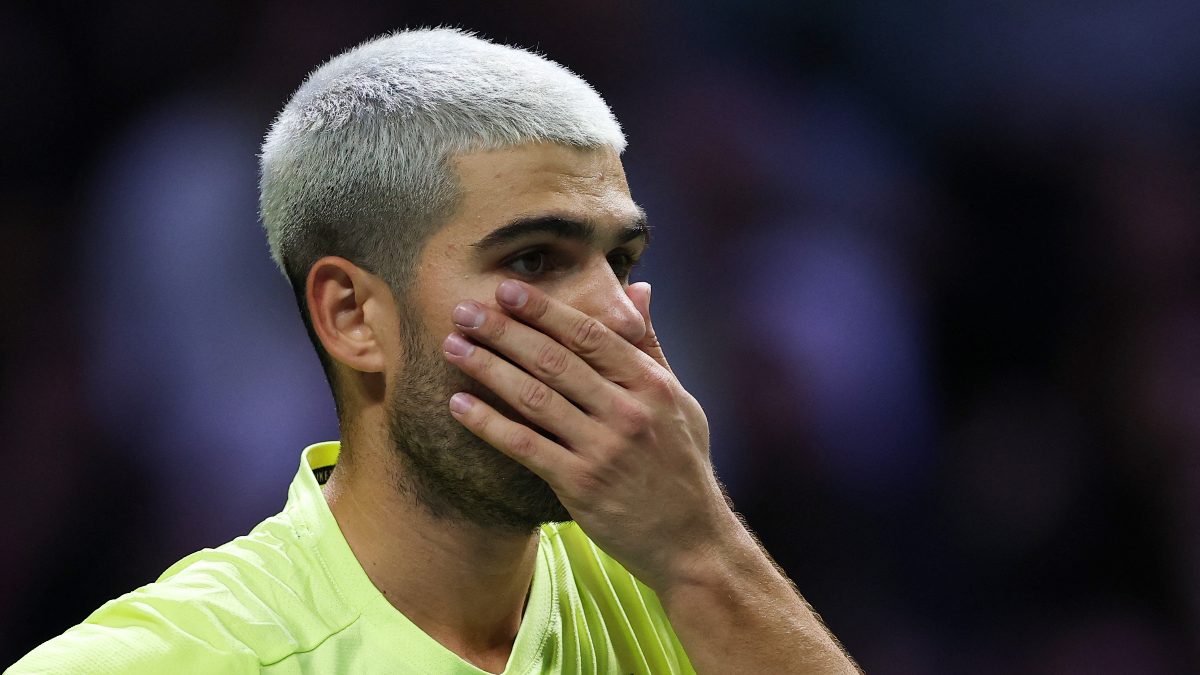While experts argue that slower and uniform courts are favouring Carlos Alcaraz and Jannik Sinner, the world No 1 was stunned by Cameron Norrie in the Round of 32 at the Paris Masters on Tuesday, on what was one of the slowest courts. Britain’s Norrie defeated Alcaraz 4-6, 6-3, 6-4 to reach the third round, ending the Spaniard’s 17-match winning streak at the ATP Masters 1000 level.
Alcaraz was clearly not up to the challenge in the second round of the Paris tournament as he committed 54 unforced errors and was also seen having a verbal exchange with his coach, Juan Carlos Ferrero.
Alcaraz fails to make most of ‘advantageous’ slow court
After his defeat, Alcaraz blamed his strategy on a slow court, which experts feel makes it tougher for lesser-talented players to outsmart the top two players in the world.
“I showed a wrong game strategy for this type of slow court,” Alcaraz said. “Things didn’t work out for me. It’s one of the worst matches of the year in terms of feelings. In Miami it was a physical issue, here it was different. I didn’t feel the ball well at any moment.”
When asked why he wasn’t able to hit his stride on the slow court of the Paris Masters, Alcaraz could not come up with a clear answer.
“I don’t know. I trained a lot here. I felt very good. I felt really great. I was moving well on the court. I felt the ball,” he said.
“My ideas were very clear, as were my goals. But today, even in the first set, although I won it, I felt like I could do much better than I had. I tried to improve in the second set. It was the opposite: I played even worse.”
It’s important to remember that Alcaraz had admitted before the start of the tournament that the courts were slower at the Paris Masters after a change in the venue, but he prefers such surfaces.
“You know, the speed of the court, yeah, it’s much slower than last year, but I think it is a really good speed that we can see tennis, not only serve or it’s not only serve plus one,” Alcaraz had said.
“So you can see rallies, you can see points, you can see tennis. So I think it’s great. Obviously I’ve said many times that I like, you know, slower courts, not that fast,” he added.
With experts arguing that slow courts favour Alcaraz and his above comments, it’s staggering that he lost to Norrie.
Experts, including Roger Federer, have argued that tournament directors are deliberately producing slow courts to ensure deep runs for Alcaraz and Sinner. They feel slow courts remove the element of surprise from the game as lower-ranked players find it tough to outbattle Alcaraz and Sinner in rallies.


)
)
)
)
)
)
)
)
)



